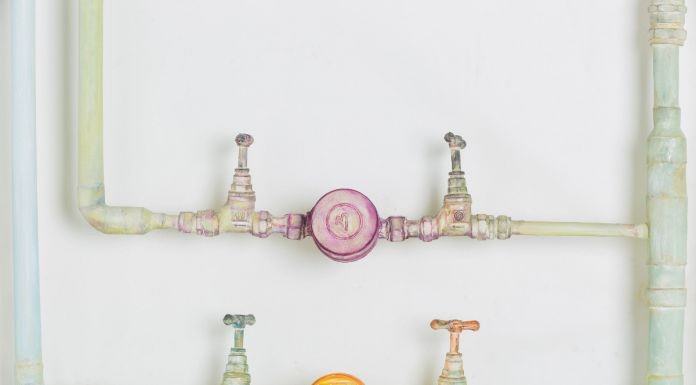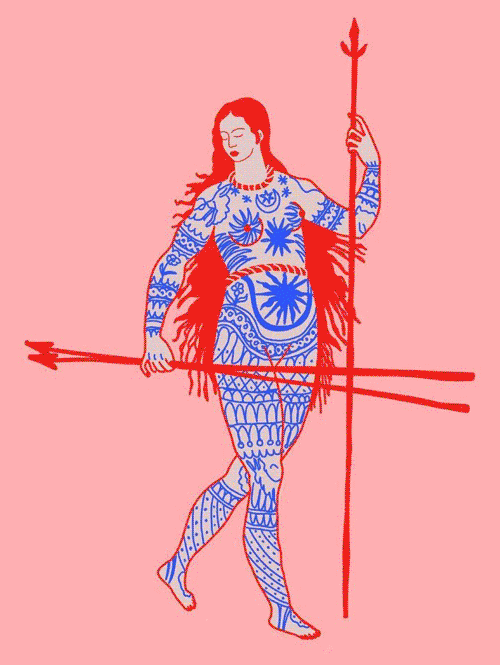Create an account
Welcome! Register for an account
La password verrà inviata via email.
Recupero della password
Recupera la tua password
La password verrà inviata via email.
-
- container colonna1
- Categorie
- #iorestoacasa
- Agenda
- Archeologia
- Architettura
- Arte antica
- Arte contemporanea
- Arte moderna
- Arti performative
- Attualità
- Bandi e concorsi
- Beni culturali
- Cinema
- Contest
- Danza
- Design
- Diritto
- Eventi
- Fiere e manifestazioni
- Film e serie tv
- Formazione
- Fotografia
- Libri ed editoria
- Mercato
- MIC Ministero della Cultura
- Moda
- Musei
- Musica
- Opening
- Personaggi
- Politica e opinioni
- Street Art
- Teatro
- Viaggi
- Categorie
- container colonna2
- container colonna1
Do Ho Suh
Mostra personale
Comunicato stampa
Segnala l'evento
Victoria Miro is delighted to present an exhibition by Do Ho Suh at its Venice gallery. Made at the STPI Creative Workshop in Singapore, the new works are part of the artist’s ongoing Rubbing/Loving project, in which rubbings of interior spaces and everyday objects are created in a process that discloses and memorialises details of the artist’s surroundings.
Do Ho Suh has visited the STPI Creative Workshop several times a year over the past ten years He is the first artist to be invited more than once to this internationally renowned resource for artists working with print and paper, and a long-term collaboration with the workshop has been instrumental in the development of his groundbreaking, large-scale thread drawings.
Focusing on objects, fixtures and fittings attached to the walls, the works in this exhibition attest to Suh’s close relationship with STPI and commemorate his time there. Light switches, door knobs, a telephone, a tap, a hairdryer hanging from a hook… created by lining objects with paper and rubbing the surface with coloured pastels, the works on display lend a quiet poetry to the quotidian while laying bare the processes, rational yet sensual, that enable the artist to determine and connect with his surroundings. Reconstructed in three dimensions, the completed works exist at the boundary of drawing and sculpture.
Touch and its repetition is a key aspect of Suh’s Rubbing/Loving works. Suh has often drawn parallels between architectural space and the body, and in these works the paper functions as an epidermis – a second or surrogate skin – that bears the impression of his own touch: pastel, applied with the fingertips in a gesture the artist describes as a ‘caress’.
For Suh, these rubbing works function as symbols of memory, and in them he documents the accumulation of time and preserves his experience of living and working within spaces of special significance. They encapsulate wider ideas in his art about home and belonging, malleable space and memory, and the boundaries of identity within a shared realm, referring to Suh’s fruitful time at STPI as well as that of the many international artists who have worked there. Contained within the works, too, are further ideas of connection, transition, movement and flow, not confined to but especially evocative in the pipework and other conduits he brings to light, ideas that acquire special resonance in the historic city of Venice.
Do Ho Suh will create a new film, Robin Hood Gardens, Woolmore St, London E14 0HG, 2018, for the V&A’s presentation at the 16th International Architecture Exhibition, in collaboration with La Biennale di Venezia. Suh’s film will be screened in the Pavilion of Applied Arts (26 May – 25 November 2018) where the V&A will present Robin Hood Gardens: A Ruin in Reverse, centred around concrete fragments of Robin Hood Gardens that will be transported to Venice from Poplar, East London. These concrete fragments come from the internationally recognised housing estate by Alison and Peter Smithson, which is in the process of being demolished. In 2017, when destruction was imminent, the V&A salvaged a three-storey section of each façade and the original interior fittings of two flats.
Made in response to the architecture and interiors of Robin Hood Gardens before its demolition, Suh’s panoramic film is both site-specific and time-specific – a document of the Smithson’s modular interiors as they have been adapted, decorated and furnished by residents, as well as a wider meditation about home, memory and displacement within a physical structure that is about to disappear. Given access to four flats, three of which were still occupied, Suh has used time-lapse photography, drone footage, 3D-scanning and photogrammetry to create a visual journey in which the camera pans vertically and horizontally through the building, moving seamlessly from one space to another. The film’s steady, contemplative pace and constant, frontal viewpoint function as a framework within which the myriad details that denote differences of taste, style, culture or circumstance from flat to flat are revealed. Its sustained motion accentuates the feeling of transition experienced by the residents and heightens a sense of imminence, of a building on the verge of demolition, less than fifty years after the architects’ utopian vision was realised.
Additionally, work by Do Ho Suh will feature in Architectural Ethnography from Tokyo: Guidebooks and Projects on Livelihood, curated by Momoyo Kaijima, the Japan Pavilion Exhibition at the 16th International Architecture Exhibition, La Biennale di Venezia.
Born in 1962 in South Korea, Do Ho Suh received a BFA in painting from the Rhode Island School of Design and a MFA in sculpture from Yale University. He currently lives and works in London, New York and Seoul. Suh represented Korea at the 49th Venice Biennale in 2001, and has staged numerous recent international solo exhibitions and site-specific projects at institutional venues including Bildmuseet, Sweden (until 15 April 2018); Whitney Museum of American Art (2017); Contemporary Arts Centre, Cincinnati (2016); MOCA Cleveland (2015 – 2016), travelling to MCA San Diego (2016); The Contemporary Austin, Texas (2014); National Museum of Modern and Contemporary Art, Seoul, Korea (2013); 21st Century Museum of Contemporary Art, Kanazawa, Japan (2012 – 2013 and 2005); Hiroshima City Museum of Contemporary Art, Hiroshima, Japan (2012); Stuart Collection, University of California, San Diego (2012); Samsung Museum of Art, Seoul, Korea (2012); Seattle Art Museum, Washington (2011 and 2003) and Tate Modern, London (2011). The artist has participated in the Singapore Biennale (2016), 8th Gwangju Biennale (2012), Venice Architecture Biennale (2010), and 6th Liverpool Biennial (2010). The first survey exhibition of Do Ho Suh’s work in Europe was presented at the Serpentine Gallery, London in 2002.
The major exhibition Do Ho Suh: Almost Home is on view at the Smithsonian American Art Museum, Washington, DC (until 5 August 2018).
Suh’s work is included in numerous museum collections worldwide including the Museum of Modern Art, New York; Whitney Museum of American Art, New York; The Solomon R. Guggenheim Museum, New York; Los Angeles County Museum of Art, Los Angeles; Museum of Contemporary Art, Los Angeles; Walker Art Center, Minneapolis; Tate, London; Thyssen-Bornemisza Art Contemporary Collection, Vienna; Museum Voorlinden, Netherlands; Leeum, Seoul; Artsonje Center, Seoul; National Museum of Modern and Contemporary Art, Seoul; Museum of Contemporary Art, Tokyo; Mori Art Museum, Tokyo; and 21st Century Museum of Contemporary Art, Kanazawa, among many others.
Do Ho Suh has visited the STPI Creative Workshop several times a year over the past ten years He is the first artist to be invited more than once to this internationally renowned resource for artists working with print and paper, and a long-term collaboration with the workshop has been instrumental in the development of his groundbreaking, large-scale thread drawings.
Focusing on objects, fixtures and fittings attached to the walls, the works in this exhibition attest to Suh’s close relationship with STPI and commemorate his time there. Light switches, door knobs, a telephone, a tap, a hairdryer hanging from a hook… created by lining objects with paper and rubbing the surface with coloured pastels, the works on display lend a quiet poetry to the quotidian while laying bare the processes, rational yet sensual, that enable the artist to determine and connect with his surroundings. Reconstructed in three dimensions, the completed works exist at the boundary of drawing and sculpture.
Touch and its repetition is a key aspect of Suh’s Rubbing/Loving works. Suh has often drawn parallels between architectural space and the body, and in these works the paper functions as an epidermis – a second or surrogate skin – that bears the impression of his own touch: pastel, applied with the fingertips in a gesture the artist describes as a ‘caress’.
For Suh, these rubbing works function as symbols of memory, and in them he documents the accumulation of time and preserves his experience of living and working within spaces of special significance. They encapsulate wider ideas in his art about home and belonging, malleable space and memory, and the boundaries of identity within a shared realm, referring to Suh’s fruitful time at STPI as well as that of the many international artists who have worked there. Contained within the works, too, are further ideas of connection, transition, movement and flow, not confined to but especially evocative in the pipework and other conduits he brings to light, ideas that acquire special resonance in the historic city of Venice.
Do Ho Suh will create a new film, Robin Hood Gardens, Woolmore St, London E14 0HG, 2018, for the V&A’s presentation at the 16th International Architecture Exhibition, in collaboration with La Biennale di Venezia. Suh’s film will be screened in the Pavilion of Applied Arts (26 May – 25 November 2018) where the V&A will present Robin Hood Gardens: A Ruin in Reverse, centred around concrete fragments of Robin Hood Gardens that will be transported to Venice from Poplar, East London. These concrete fragments come from the internationally recognised housing estate by Alison and Peter Smithson, which is in the process of being demolished. In 2017, when destruction was imminent, the V&A salvaged a three-storey section of each façade and the original interior fittings of two flats.
Made in response to the architecture and interiors of Robin Hood Gardens before its demolition, Suh’s panoramic film is both site-specific and time-specific – a document of the Smithson’s modular interiors as they have been adapted, decorated and furnished by residents, as well as a wider meditation about home, memory and displacement within a physical structure that is about to disappear. Given access to four flats, three of which were still occupied, Suh has used time-lapse photography, drone footage, 3D-scanning and photogrammetry to create a visual journey in which the camera pans vertically and horizontally through the building, moving seamlessly from one space to another. The film’s steady, contemplative pace and constant, frontal viewpoint function as a framework within which the myriad details that denote differences of taste, style, culture or circumstance from flat to flat are revealed. Its sustained motion accentuates the feeling of transition experienced by the residents and heightens a sense of imminence, of a building on the verge of demolition, less than fifty years after the architects’ utopian vision was realised.
Additionally, work by Do Ho Suh will feature in Architectural Ethnography from Tokyo: Guidebooks and Projects on Livelihood, curated by Momoyo Kaijima, the Japan Pavilion Exhibition at the 16th International Architecture Exhibition, La Biennale di Venezia.
Born in 1962 in South Korea, Do Ho Suh received a BFA in painting from the Rhode Island School of Design and a MFA in sculpture from Yale University. He currently lives and works in London, New York and Seoul. Suh represented Korea at the 49th Venice Biennale in 2001, and has staged numerous recent international solo exhibitions and site-specific projects at institutional venues including Bildmuseet, Sweden (until 15 April 2018); Whitney Museum of American Art (2017); Contemporary Arts Centre, Cincinnati (2016); MOCA Cleveland (2015 – 2016), travelling to MCA San Diego (2016); The Contemporary Austin, Texas (2014); National Museum of Modern and Contemporary Art, Seoul, Korea (2013); 21st Century Museum of Contemporary Art, Kanazawa, Japan (2012 – 2013 and 2005); Hiroshima City Museum of Contemporary Art, Hiroshima, Japan (2012); Stuart Collection, University of California, San Diego (2012); Samsung Museum of Art, Seoul, Korea (2012); Seattle Art Museum, Washington (2011 and 2003) and Tate Modern, London (2011). The artist has participated in the Singapore Biennale (2016), 8th Gwangju Biennale (2012), Venice Architecture Biennale (2010), and 6th Liverpool Biennial (2010). The first survey exhibition of Do Ho Suh’s work in Europe was presented at the Serpentine Gallery, London in 2002.
The major exhibition Do Ho Suh: Almost Home is on view at the Smithsonian American Art Museum, Washington, DC (until 5 August 2018).
Suh’s work is included in numerous museum collections worldwide including the Museum of Modern Art, New York; Whitney Museum of American Art, New York; The Solomon R. Guggenheim Museum, New York; Los Angeles County Museum of Art, Los Angeles; Museum of Contemporary Art, Los Angeles; Walker Art Center, Minneapolis; Tate, London; Thyssen-Bornemisza Art Contemporary Collection, Vienna; Museum Voorlinden, Netherlands; Leeum, Seoul; Artsonje Center, Seoul; National Museum of Modern and Contemporary Art, Seoul; Museum of Contemporary Art, Tokyo; Mori Art Museum, Tokyo; and 21st Century Museum of Contemporary Art, Kanazawa, among many others.
25
maggio 2018
Do Ho Suh
Dal 25 maggio al 07 luglio 2018
arte contemporanea
Location
VICTORIA MIRO VENICE
Venezia, San Marco, 1994, (Venezia)
Venezia, San Marco, 1994, (Venezia)
Vernissage
25 Maggio 2018, ore 17,30 su invito
Autore









